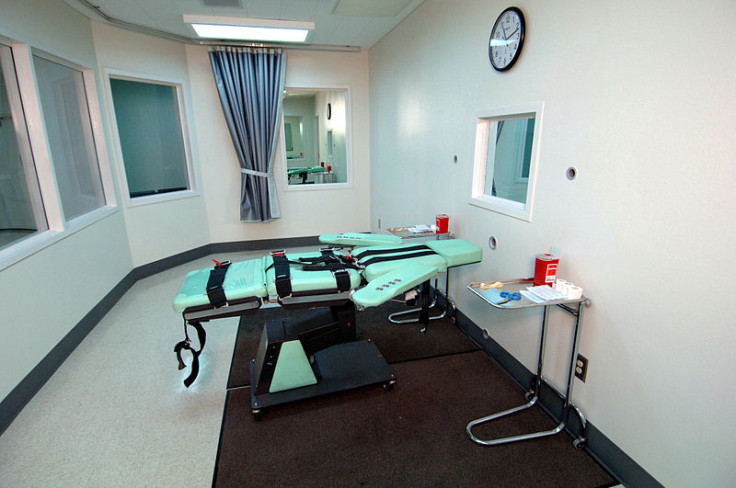Death Penalty 2013: 'Hundreds Sentenced for Vague Anti-Terror Laws'

Executions were recorded in 22 countries in 2013, marking a global rise in the use of the death penalty. The 2013 report issued by Amnesty International has revealed the overall number of reported executions worldwide was 778 – a rise of 15% compared with the previous year. A worrying development to campaigners for the abolition of executions, the recent figures represent the minimum number of death sentences. As not all of them are reported, the tru figure could be much higher.
The report came just days after an Egyptian court sentenced to death 529 supporters of the banned Muslim Brotherhood, following violence in the southern city of Minya last August.
Some progress towards abolition has been made. The US was the only country in the Americas to carry out executions in 2013, and the number of executions in the country continued to fall. Maryland became the 18<sup>th state to abolish capital punishment. Texas alone accounted for 41% of all executions in the region.
Olof Blomqvist, a spokesperson for Amnesty International, told IBTimes UK: "The global rise in executions last year was deeply disappointing, not least because it bucks the trend towards abolition of the death penalty. Those states still clinging to executions are becoming increasingly isolated and running out of arguments for using the death penalty."

In 2013, Amnesty International recorded 22 countries had carried out executions – one more than in 2012 – down from 25 in 2004. By the end of 2013, 98 countries abolished the death penalty in law for all crimes, up from 85 a decade ago.
Official figures on the use of the death penalty are only available in a small number of countries. In Belarus, China and Vietnam such information is considered a state secret. Egypt, Eritrea, Malaysia, North Korea and Syria provided little or no information because of restrictive state practices and/or political instability.
Iran/Iraq
According to Blomqvist, Iran and Iraq registered a particularly worrying increase in the executions, as a quick fix to tackle the rising levels of violence. In Iraq, reported executions leapt by 30%, with at least 169 people put to death. The number was even larger in Iran, with at least 369 officially acknowledged executions. Hundreds more deaths were unacknowledged.
Blomqvist said: "Iran and Iraq really stood out last year for all the wrong reasons - in both countries, scores more people were put to death compared to the year before.
"Hundreds have been sentenced to death under vague anti-terror laws, often following manifestly unfair trials or reports of torture. The Iraqi government's desperation to tackle the escalating violence is understandable but the death penalty is not the answer. There is no evidence that it works as a particular deterrent to crime."
In Iran, the execution of children after they have reached puberty is allowed under sharia law, although it is prohibited by international human rights law. The 1991 Civil Code states that boys over 15 lunar years and girls over nine lunar years can be executed. One lunar year can be between 354 and 365 days long.
China
Since its 2009 report, Amnesty International has ceased to publish estimates on the use of the death penalty in China. The recent statistics exclude data from China, where the information is considered a state secret. In last year's report, however, Amnesty International stated that it was probable that thousands of people were executed in 2012.
Last August, the issue arose again as a five-minute film of a man being executed was viewed millions of times on the Chinese internet portal Sina. The footage shows locals watching from a rural hillside as a man is hauled from a police vehicle, forced to kneel and shot in the head with a handgun.
Blomqvist added that China had "once again executed thousands, more people than the rest of the world put together".
"But with the death penalty treated as a state secret it's impossible to confirm the correct number. Even in China, however, there was some limited progress as the government announced an end to organ harvesting from executed prisoners, for example."
© Copyright IBTimes 2025. All rights reserved.






















